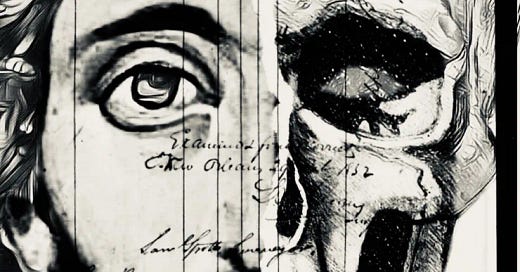Philippians 3:4b-14
In preaching my way through the last book of the Bible, I’ve been reflecting on the way the prophet John uses the term Babylon to depict the Roman Empire and, indeed, every empire.
Interestingly, the scripture readings assigned for the tradition’s Easter vigil take us to the cross and empty tomb by way of Babylon. The vigil includes the story from the Book of Daniel in which King Nebuchadnezzar of Babylon throws Shadrach, Meshach, and Abednego into an oven.
Bound by the first commandment, the three Jews fail to offer the king the divine fealty he demands.
The king consigns them to a fire, from which we get the word, holocaust.
What made the Babylonians unique among ancient oppressors is that, upon invading and conquering neighbor nations, they did not simply kill the best and brightest of their neighbors. They exiled their enemy’s best and brightest back to Babylon and forced them to become Babylonians.
Babylon gave their prisoners new names and new gods.
They made them pagans.
And, so Shadrach, Meshach, and Abednego— they’re Jewish exiles, conscripted into the civil service under Nebuchadnezzar, the pagan King of Babylon. They’re Jews, but the names with which they’re named by Babylon pay homage to Babylon’s pagan gods.
Shadrach (his Hebrew name had been Hananiah) is named for the pagan god of the moon.
Meschach (his Hebrew name had been Mishael) is named for the pagan god, Aku.
And Abednego (his Hebrew name had been Azariah) is named for the pagan god of wisdom.
For Jews, for whom the first and most urgent commandment is “You shall have no other gods but the one, true God,” to bear the name of a false god is a grave sin indeed. To carry the name of a pagan god is to expect that the true God has forsaken you. Or, worse, it’s to expect that whatever suffering comes to you has been sent by the God you forsook. In the story, Shadrach, Meshach, and Abednego are denounced for refusing to submit to the gods of Babylon and, by implication, for refusing to submit to the authority of Nebuchadnezzar. So Nebuchadnezzar orders the three exiles gagged, bound, and cast into a fiery furnace but not before the king instructs his men to crank the oven up to seven times its normal heat, and seven— you should note the surprising clue— is the biblical number for perfection or completeness and, thus, it’s a number that foreshadows the presence of God.
The furnace gets so hot that the heat obliterates the guards who come close enough to the fire to toss the prisoners inside but not Shadrach, Meshach, and Abednego.
According to Daniel, King Nebuchadnezzar and his courtiers can see Shadrach, Meshach, and Abednego in the fiery furnace, walking around, unbound and unburned.
What’s more surprising, the bystanders report seeing a fourth person there in the fire.
Shadrach, Meshach, Abednego and who exactly?
“The fourth has the appearance of a son of God,” the counselor reports to Nebuchadnezzar.
The story in Daniel ends with a typical Old Testament flourish when King Nebuchadnezzar, having brought Shadrach, Meshach, and Abednego out of the fire, unsinged, throws off his former affections and declares: “…there is no other god like this Son of God!”
In other words:
There is no other god who meets us in the fire.
There is no other god but the God who meets us in the crucible of suffering.
Despite what so much of our God-talk implies, God is not the passive, inactive, fixed-point center of the universe to whom it’s your job, through prayer and piety, to grow closer.
Keep reading with a 7-day free trial
Subscribe to Tamed Cynic to keep reading this post and get 7 days of free access to the full post archives.




